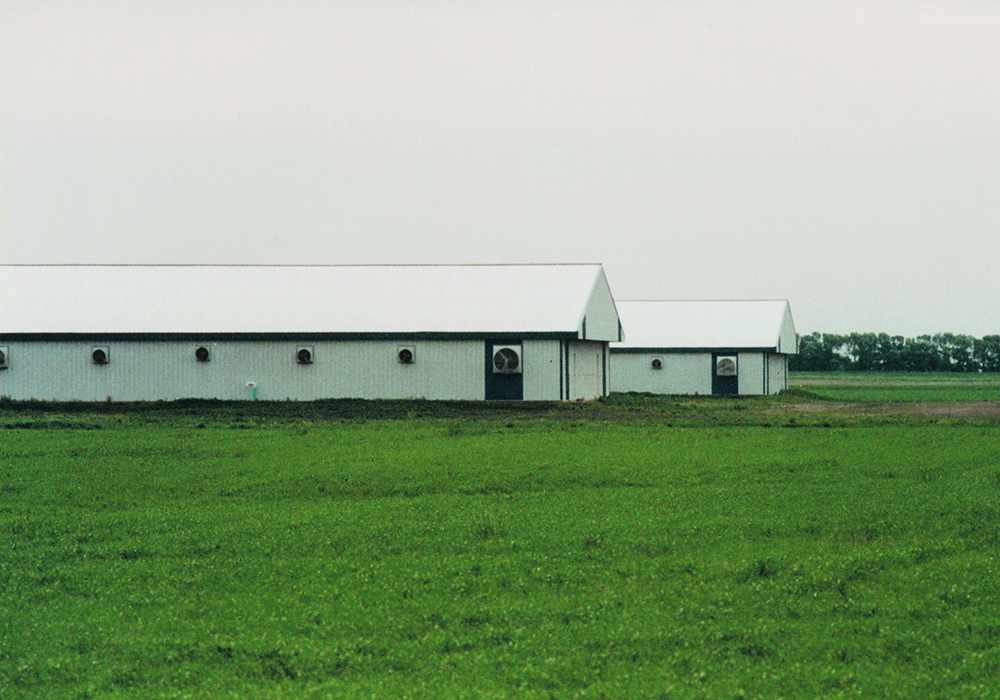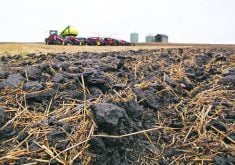A Senate amendment to a private member’s bill would exempt grain drying but not barn heating and greenhouses
Farm organizations and farmers across the country urge senators to defeat an amendment to Bill C-234 that removed barns and greenhouses from a potential carbon pricing exemption.
The proposed changes mean the bill, which would amend the Greenhouse Gas Pollution Pricing Act, would exempt natural gas and propane used for grain drying but not barn heating and cooling.
“The amendment suggests that some farms are less important in our industry, in their contribution to our food security, and in helping to address rising food prices,” said Agricultural Producers Association of Saskatchewan president Ian Boxall. “No farm should be left behind.”
Read Also

Crop quality looks good this year across Prairies
Crop quality looks real good this year, with the exception of durum.
The Agriculture Carbon Alliance wants the bill to revert to its original form, saying it was disappointed with the amendment.
It has launched an email campaign for farmers to contact senators and express their concern.
The email said if the amendment passes, it would “unfairly exclude tens of thousands of ranchers, farmers and growers from much-needed financial relief. For producers like me, this support is vital.”
Co-chair Dave Carey said the original bill recognized the lack of viable fuel alternatives for certain on-farm practices.
“Adopting this amendment establishes an unjust precedent within the industry,” he said. “Our farmers, ranchers and growers pay tens of thousands of dollars in carbon pricing annually and it takes time for the needed infrastructure to be built and emerging alternative technology to be scaled up and be readily available to all farmers at a reasonable price.”
The committee heard from several witnesses that alternatives for grain drying are years away, but that ground source heat pumps for buildings might be closer.
ACA co-chair Scott Ross said the amendment could affect the competitiveness of poultry, egg, cattle, dairy, pork, sheep, fruit and vegetable, and mushroom growers.
“Continuous carbon pricing without viable alternatives for essential farm practices diverts funds from critical investments in innovation that drive efficiency,” he said.
Senator Pierre Dalphond posed the amendment during clause-by-clause debate at the agriculture committee Oct. 19, saying, “the committee clearly heard that alternatives and efficiencies are really achievable in barn heating.”
He said the amendment would discourage other sectors from seeking exemptions for their buildings, too.
Although committee chair Rob Black initially ruled the amendment inadmissible because it changed the intent of the bill, the committee voted against his ruling.
After debate, committee members voted 7-6 in favour of the amendment, with one abstention.
Another amendment to reduce the sunset period of the bill from eight years to three was defeated, as was a third that would have eliminated the possibility of an extension to the sunset period. Both votes were tied, which results in a lost motion.
The ACA, which represents 15 national farm organizations, said the amendment changes the scope, spirit and intent of the bill and violates typical Senate practices.
Canadian Federation of Agriculture president Keith Currie said carbon pricing is a financial burden that prevents farmers from investing in improvements to their environmental performance.
“Temperature control is only going to become more important and energy-intensive as the climate continues to change,” he said.
Meanwhile, prime minister Justin Trudeau announced last week that home heating fuel in Atlantic Canada would be exempt from carbon pricing. That comes a year after the Liberal government defeated a Conservative motion to remove the carbon tax on home heating fuel.
Agriculture critic John Barlow called the move hypocritical.
“They kill a bill in the Senate to provide carbon tax relief for farmers but now admitting their punishing tax is forcing Atlantic Canadians to choose between food and home heating,” he said on X, formerly known as Twitter.
Conservative leader Pierre Poilievre, in a letter to Trudeau, said the government should axe the tax on all home heating, especially from cleaner sources such as natural gas.
Saskatchewan premier Scott Moe said the federal decision isn’t fair to other Canadians and called on Trudeau to exempt all home heating fuels.
“If not, effective Jan. 1, SaskEnergy will stop collecting and submitting the carbon tax on natural gas, effectively providing Saskatchewan residents with the very same exemption,” he said.
















